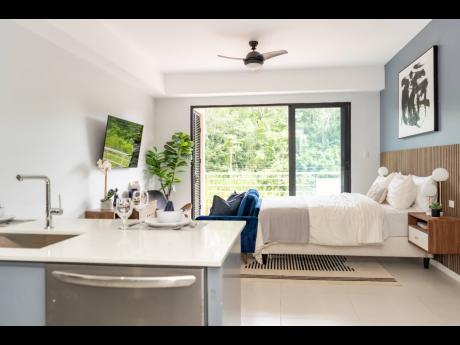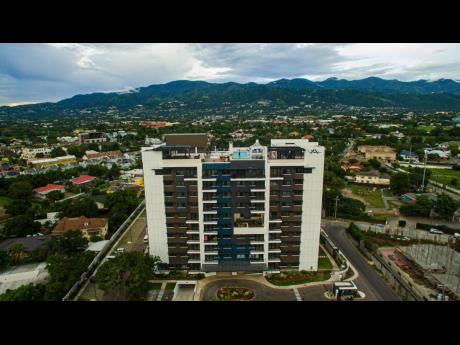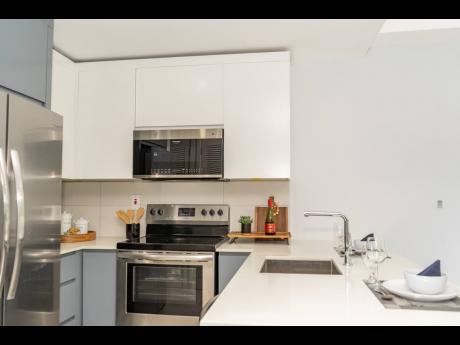Real Estate Talk | A guide to buying real estate in Jamaica
Purchasing real estate in Jamaica can be one of the most lucrative asset investments one can make. Often touted that “you cannot lose with block and steel”, real estate is a proven path to creating wealth. Many Jamaicans, both locally and abroad, dream of owning a “piece of the rock”.
However, the process can seem intimidating, causing many to hesitate. Here’s a clear guide to the steps and documents needed for a smooth and successful purchase.
PRE-QUALIFICATION
When setting your real estate goals, start by asking yourself, “What can I afford?” If you’re considering a mortgage, it’s crucial to get pre-qualified with a reputable financial institution. This process will clarify your affordable price range, the amount needed for your deposit, and the bank’s closing costs. Meeting with your mortgage officer can help you understand these details before you start your search for a home.
You’ll also need this document to show the seller you can afford the purchase. Given that real estate is likely one of the largest investments you’ll make, it’s essential to shop around for the best mortgage rates and fees. Current mortgage rates for Jamaican dollar loans range from 0 per cent to 5 per cent with the National Housing Trust (NHT), 7.95 per cent to 11 per cent with commercial banks, and 10.45 per cent to 11.5 per cent with building societies. Some banks offer up to 95 per cent financing with a repayment period of up to 35 years. Factors considered include your age, first-time homeowner status, debt service ratio, and credit score.
CASH PURCHASERS
The Anti-Money Laundering Act requires all monies to go through the bank, so proof of funds is necessary. This can be your most recent savings and investment statements, a bank letter in your name, or your business’s name.
SAVE, SAVE, SAVE!
Yes, having money in the bank is crucial. A deposit, often ranging from 5 per cent to 20 per cent of the selling price, demonstrates your seriousness. You also need to save for closing costs, which include fees for the sales agreement, stamp duty (a flat fee of $5,000), registration fees (0.5 per cent of the market value), and transfer tax (2 per cent of the market value). Additionally, your mortgage lender will have closing costs, typically 2.5 per cent of the purchase price plus GCT.
One tip is to discuss these fees with your mortgage officer to ensure you get the best deal.
HOUSE HUNTING
With your pre-qualification letter and savings ready, start your search. Find a passionate and trustworthy real estate sales agent who can guide you. Or, you can choose to search for homes yourself by driving around neighbourhoods or scoping out the real estate section of the newspapers weekly. Clearly communicate your needs and deal breakers. Some of the key considerations include location, size, number of bedrooms and bathrooms, and amenities.
Here are some questions that should impact your decision when purchasing a home, especially if it is an apartment complex or townhouse.
Does the property have 24-hour security?
What is the monthly maintenance fee and what does it cover?
Is the complex managed by a property manager?
Are pets allowed?
How many units are in the complex?
Is short or long-term leasing allowed?
How often is garbage collected?
A good sales agent can make your search less stressful, offering access to a larger network of sellers, better deals, and emotional support. In Jamaica, real estate agents’ commissions are paid by the vendor, so their services are at no cost to you, the purchaser.
One of the most asked questions is, ‘Do I really need an attorney?’ The simple answer is yes, you do.
Using a real estate attorney simplifies the home-buying process. An experienced attorney can streamline the complex steps involved in purchasing property. Although this adds to your expenses, an attorney protects your interests, ensuring there are no irregularities with the sales agreement or property. Once your offer is accepted, the vendor’s attorney prepares the contract for your attorney to review. Attorneys also conduct checks at the Title’s Office to confirm the title is in the vendor’s name and ensure there are no breaches on the property. It’s better to be safe than sorry.
While the process might seem tedious, thorough research and using the best professionals will make your journey exciting and rewarding.
Natalie Sawyers is a sales and customer service associate at Proven Properties. Email feedback to realtalk@weareproven.com and lifestyle@gleanerjm.com.
Essential Documents Checklist
- Customer Information Form: Required by the Real Estate Board (REB), this includes your full name, civic address, occupation, etc.
- Valid Identification: Acceptable IDs include Driver’s Licenses, Passports, Voter’s IDs, and State IDs.
- Tax Registration Number (TRN): Necessary for purchasing property in Jamaica. Apply at www.jamaicatax.gov.jm.
- Proof of Address: Provide a recent utility bill, credit card statement, or letter (not older than 3 months) showing your home address.
- Valuation Report: Establishes the property’s value and is required by your mortgage lender.
- Surveyor’s ID Report: Identifies the property using the title and checks for any breaches of restrictive covenants.





